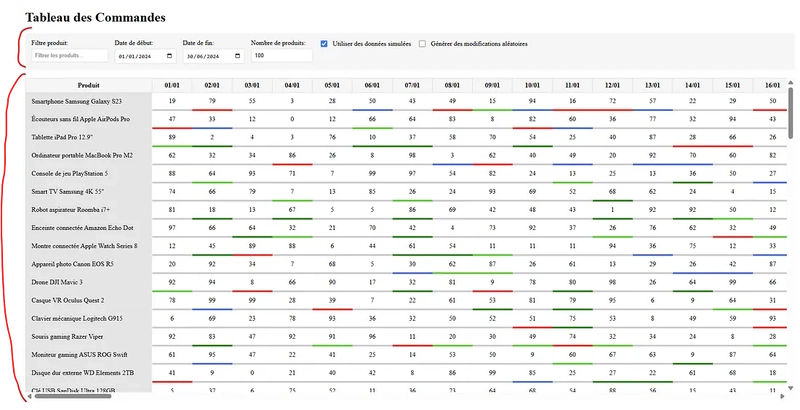Campus communities rally around international students threatened by ICE
Faculty and classmates are stepping up to protect the close to 1,400 foreign students who have had their names taken off the international tracking system by the Trump administration, including new safety measures on campus as well as coordinated legal efforts. Campus communities have created buddy systems for international students, started GoFundMe pages for those...

Faculty and classmates are stepping up to protect the close to 1,400 foreign students who have had their names taken off the international tracking system by the Trump administration, including new safety measures on campus as well as coordinated legal efforts.
Campus communities have created buddy systems for international students, started GoFundMe pages for those arrested by Immigration and Customs Enforcement (ICE) and held seminars so students know their rights and what to do if approached by federal officials.
Americans “are concerned about the attacks on immigrant students and non-citizen students," said Zainab Chaudry, director of the Council on American-Islamic Relations office in Maryland. "And so, there has been a very real desire to want to try to take whatever efforts are possible to protect those students from being targeted."
Multiple faculty groups, including at Cornell University and the University of Maryland, have initiated GoFundMe campaigns for students who need help paying for legal services after being targeted by ICE.
The Association of International Educators, or NAFSA, said that as of April 18 the number of foreign students whose records have been terminated in the Student and Exchange Visitor Information System (SEVIS) has grown to 1,400, jumping from 800 recorded on April 10. SEVIS termination does not automatically affect legal status, but removal from it has often preceded visa revocations under the Trump administration.
NAFSA says there is no clear pattern, with students from more than 40 countries seeing their SEVIS record terminated. The five countries with the greatest number of terminations are also the top five with the most foreign students sent to the United States: China, India, Saudi Arabia, South Korea and Nigeria.
"It's just the overall environment in society right now that's giving that tense feeling, and you can kind of see that in the lives of students, especially international students,” said Steven Mendell, a student at American University.
Students have seen classmates taken off SEVIS for no clear reason, while horror stories spread after arrests like that of Rumeysa Ozturk, the Tufts University student who was swept up by plainclothes officers and taken away by ICE in an unmarked van.
Multiple campuses have seen the creations of buddy systems where international students are partnered with ones who are U.S. citizens to walk them to class or run errands given the importance of quick action after someone is arrested by ICE.
“One of the pieces of information that keeps coming up in different conversations is the fact that Mahmoud Khalil’s wife was with him. There was video footage of what happened, and so there is a documentation,” Chaudry said of the Columbia University activist. “And had there not been that video footage ... nobody would have really understood the full context of what actually happened. And so, that was really critical.”
Knowing when a student is arrested can also help their lawyers file a lawsuit quickly, which can play a key role in determining where court proceedings will take place.
Khalil and Ozturk were both quickly taken by ICE to facilities in Louisiana, whose district courts feed into the most conservative federal appeals court in the country.
Amnesty International USA and the American Civil Liberties Union have launched a campaign called Firewall for Freedom to encourage students to pass resolutions on their campuses to urge administrators to do more to fight against President Trump's attacks on higher education.
“Part of this targeting of international students — and particularly students who've spoken up at protests, but kind of anyone that comes into the crosshairs of the Trump administration — is part of a much broader attack and a rise of authoritarian practices from the Trump administration,” said Tarah Demant, national director of programs with Amnesty.
While the group acknowledged the timing isn’t ideal towards the end of the school year, as campuses will soon be emptying out for the summer, they received a “good response” initially, and students at American University are already looking to pass the resolution.
"It's definitely hard and definitely inconvenient,” to work on this during the end of the year, Mendell said, but “universities should be a place where students .... their freedoms are protected and they can engage in academic freedom without feeling like they're being threatened and their security is being undermined.”
“I think the more difficult part is going to be the steps after if the student government does approve the resolution, because then it will actually involve communicating to the university [...] it definitely might be a longer journey down the road, especially as we head into the summer months," he added.
Lawsuits have been filed against the visa revocations, and several schools have signed amicus briefs against the administration, but Chaundry called out others that have so far refused to do so, likely fearing the funding cuts Trump has eagerly deployed as a weapon.
“Johns Hopkins has failed to sign on to the amicus brief, and they have failed to provide any measure of assurance or protections to students. So that's definitely an area where we need to do more work to demand accountability,” Chaudry said.
Johns Hopkins is a member of the Association of American Universities, which has sent a letter to the federal government requesting a meeting regarding visa revocations.
"International affiliates are deeply valued members of the Johns Hopkins community, and we remain committed to supporting all our students, faculty and staff. We share the serious concerns arising from recent immigration actions, and we understand the anxiety they instill in our community members and their families," a spokesperson for the university said.











































































